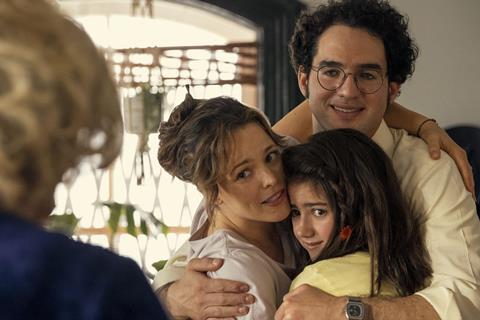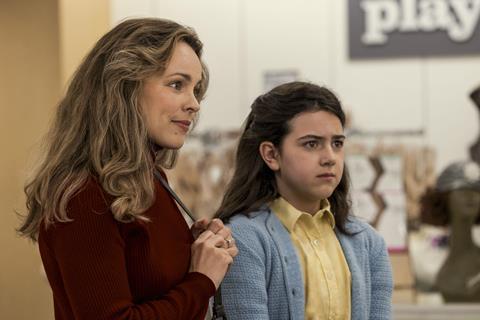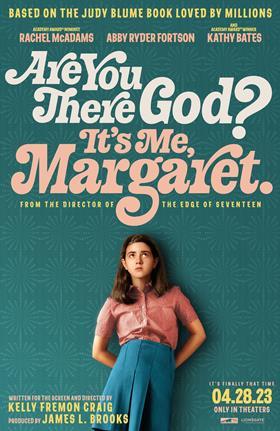Woman Alive editor Tola-Doll Fisher on why coming of age story, Are You There God? It’s Me, Margaret, in cinemas from 19 May, remains incredibly powerful even for adults.
My mum famously said ‘television is the enemy of progress’ so when I wasn’t doing chores, homework or any one of our scheduled extra-curricular activities, I spent many, many hours lying on my stomach devouring every single book in the house.

Because while mum may have objected to the American television loved by my peers, she was more than happy for me to be exposed to their writers. Enter Judy Blume: the woman whose coming of age books informed much of my early teenage years and played a major part in the lives of my peers all over the world.
When I was 13, my best friend was Jewish and with me growing up in a Christian home, we represented both sides of the religious dilemma Margaret found herself in
I can’t quite remember the first of Judy’s 25+ books that entered my world but Are You There God? It’s Me, Margaret is one that particularly stands out. Fellow readers will be familiar with one of the most well-known phrases in that book which is uttered when the protagonist, Margaret, and her friends chant in unison: ‘I must, I must, I must increase my bust!’ (And in my case, that chant which my friends and I dutifully repeated, worked a little too well…)
When I was 13, my best friend was Jewish and with me growing up in a Christian home, we represented both sides of the religious dilemma Margaret found herself in as she navigated her relationship with God through a Jewish father and Christian mother.
we first see Margaret speaking to God at home, in her room and not in a traditional religious space like a church or temple
I was glad to see that in the film adaptation the writers did not leave out this important part of Margaret’s experience. Along with the impatience she and her friends had about growing boobs, starting periods and kissing boys, Margaret was also very keen to work out a relationship with God. In both the book and the film, we first see Margaret speaking to God at home, in her room and not in a traditional religious space like a church or temple. She talks freely to God about her concerns and is perturbed when she does not always receive a response.

With her parents leaving her to find her own path, Margaret’s searching takes her to visit both a church and a temple, in order to honour both the religions followed by her parents and grandparents. In the film we see Margaret being baffled by the Hebrew language led service in temple and moved by the rousing music in the black-majority church she attends with a friend. However, upon returning home she tells God that although the people at temple were friendly and the dancing at church fun, she did not find Him there.
Read more on books
Here are the top ten books every Christian woman should read in 2023
I love women, but reading books written by men helped me to grow and understand myself better
Fay Weldon 1931-2023: a feisty feminist writer with an unexpected but committed faith in Jesus
Meet the 1800s’ most incredible Christian female author – who didn’t just tell girls to get married
As adults many of us will be familiar with the practice of wondering what you would say to your younger self. Most of us would choose things that we only know now in hindsight. We might talk about our careers, our finances or our choice in partners. The letters we write – or think about writing – give advice based on our understanding of life as adults and what we have learned about the world around us. However, when it comes to matters of faith, I think 12-year-old Margaret has it spot on. I’ve met and heard of people who go to places of worship in order to find “God” only to leave disgruntled when the people they meet do not represent anything like what or who they imagine God to be. Margaret, however, has a simple childlike understanding of God. She knows that He exists outside of religion and the walls of our religious buildings, and only seeks to know which channel is best to continue her journey of faith.
when it comes to matters of faith, I think 12-year-old Margaret has it spot on
In this story, her “crisis” of faith comes not because of anything she experiences at church or temple, but because of the issues she faces in her own life and the sense that God does not care about them or, by association, Margaret herself. If you’re new to the story, I won’t spoilt the end for you but I will say that this very simple understanding of faith means that Margaret’s relationship with God is a very healthy and personal one and much unlike mine, which has sometimes felt reliant on church attendance.
Jesus’ words in Matthew 18:2-4 express that we should be like little children and the faith of Margaret in this film is a beautiful example of that.
Planning a group trip? Here’s a reading guide for use in your church or friendship group





































No comments yet